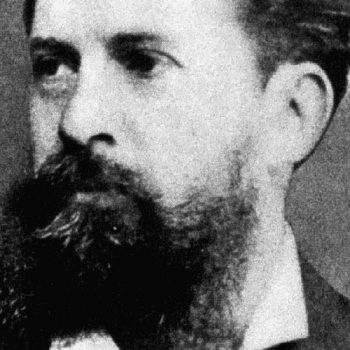While Socrates embodied virtue in his life and came to be seen in the Antique world as an archetype for the philosophical sage, he in fact did not put forward a concrete view of what justice was. This job would fall to Plato. The question of justice remains fundamental for him after Socrates’ death. Plato takes up the issue in numerous writings, exploring the question both as relevant to the individual and the polity. Here the focus is on his mature view in the Republic. In response to the story of Gyges’ Ring (earlier discussed), Plato proposes a view of human nature at odds with that of the social contractarians. On the basis of this view, he argues that human beings are only ultimately satisfied by a life of virtue.
Let us start by looking at the individual soul. According to Plato, the human soul is comprised of three parts — an appetitive, a spirited and a rational part — all of which pull individuals in differing directions. As Plato expresses this in the Republic, he asks us to envisage humans as comprised of a multi-headed beast, a lion, and a human. Each of these pulls the human soul in a different direction, as they vie for dominance. However, it is ultimately our choice to feed one or the other. We can choose to feed the multi-headed beast. But a life in which we do so becomes one where we consume ourselves, in which we are never satisfied, but always at war with ourselves. We can choose to feed the lion, but then we become a victim of our own desire for honor or pride. It is only by feeding the human that we will gain a harmonious soul, a fulfilled nature, and a happy human life. The wise who pursue such virtue will not thereby fail to acknowledge the value of the other parts of the soul. But they will know to meet the needs of the lower soul in appropriate measure. Through the cultivation of a virtuous character individuals are able to bring the lower parts of their souls under the control of their rational soul.
In contrast then to Glaucon, who affirms a social contract perspective that justice is not intrinsically valuable but only valuable because it prevents individuals from being punished for being unjust, Plato agues that virtue is good in itself and creates a harmony of the soul that is lacking among the vicious. Those with vices in fact lack control of the self. They become enslaved to their lower desires. So enslaved, they lack true sovereignty, the control of the self that comes with virtue alone.
The appetites and spirited part of the soul in fact are parts of the soul that humans share with other animals. What is really defining for humans qua humans however is the rational soul. To cultivate habits that subject our reason to the whims of our appetites or to the desire for social recognition or honor that appeals to our spirited part of the soul is to cultivate a character that is less than fully human. We only really fulfill ourselves, our natures, if we feed our rational soul more than any of our other parts.
An overview of justice in the polity
Plato imagines the polity to have a similar tripartide structure to the individual. He argues that just as an individual has a rational, a spirited, and an appetitive part, so does the polity. In a polity classes of individuals occupy natural strata of society — the king, the aristocrats, and the workers. Each of these strata is an expression of the individuals comprising it, who are dominated by of a differing part of the soul. A just society would be one dominated by the wise, who are dominated by their rational souls. Plato imagines rule by philosopher kings, who others obey out of an understanding of their own rightful place in society. An oligarchy would be ruled by multiple individuals, but individuals who were not wise but dominated by their desire for honor and social recognition. This would lead to certain compromises in justice as those pursuing honor would at times overlook the true needs of those in society. Finally a democracy would be ruled by the multitude, by those dominated by appetites. Democracy, in Plato’s view, is the worst form of government and would have a tendency toward self-dissolution. Since individuals, dominated by their own desires and lusts, would vie for power and become embroiled in political conflict, democracy would tend toward entropy. Those in a democratic society would tend to be easily manipulated by a tyrant who promised to fulfill all their conflicting desires but who, once in power, would use the power to benefit himself. A just society by contrast would be one in which the wise ruled and members of other strata knew their place. Plato failed to see the advantages of democracy that became apparent to modern political theorists. While this makes his political theory anachronistic, some of his insights into dangers of democracy are still worth considering.
Plato’s entire discussion of justice in the polity is very involved. Here I can do no more than point to some very general similarities between that view and the view of justice in the individual. In both cases, the rational part should rule the others. In Plato’s view this is the only path to harmonious relations between an individual, who has a conflict-ridden soul and the polity, which, unless guided wisely, otherwise also tends toward disharmony.
Conclusion
Though Plato draws out similarities between justice of the individual and justice of the polity, this is of course quite a large assumption. Many may be attracted to his view that a certain sovereignty comes in gaining control of the self and living moderately, rather than controlled by one’s passions or emotions. Yet this would not commit them to an acceptance of his views on the virtues of hierarchical forms of government.
For most of Western history, however, many thought these views did pair well together. It was thought that the aristocratic rulers should have nobility of spirit, which would make them suitable for rule. The majority, the rabble, would always be unfit for self-rule. Only in the Enlightenment do we begin to see strong shifts away from this and does support democratic forms of government begin to become the norm rather than the exception.
See Plato on Art

